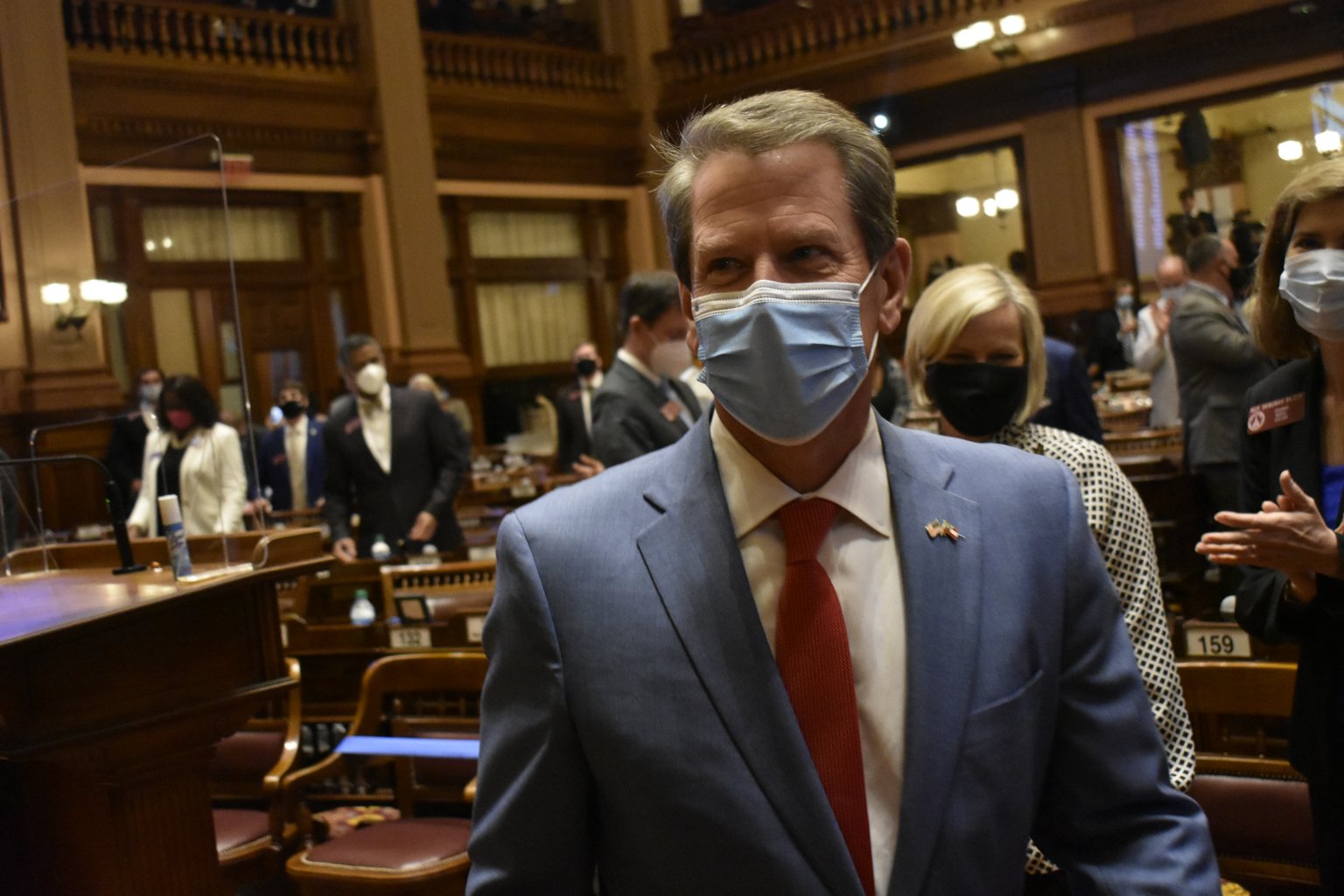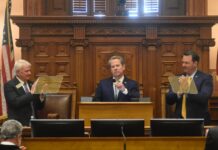
Lawmakers signed off on a spending plan with about $2.2 billion in budget cuts – including nearly $1 billion less for public schools – but budget writers seemed to mostly breathe a sigh of relief that the reductions weren’t worse.
The budget that takes effect Wednesday no longer includes unpaid days off for state workers, and it softens cuts to behavioral health and addiction treatment services that were slashed in earlier versions.
And lawmakers say about $460 million in federal aid and local reserves will help dull some of the pain of the $950,000 cut to the state’s education funding formula.
“It’s tough to cut 10%,” Rep. Terry England, an Auburn Republican who chairs the House Appropriations Committee, said to his colleagues late Friday. “There’s nothing easy about cutting 10% out of a budget, but I truly believe that what you have on your desk in front of you is something that you can go home and be proud of.”
Some of the more troubling cuts proposed for public health and the state’s public defenders were undone in the final budget version, and lawmakers reversed course and included the nearly $20 million needed to cover six months of additional Medicaid coverage for low-income new moms to help curb the state’s high rate of maternal mortality.
Lawmakers backed the $25.9 billion budget with votes that largely fell along party lines. Democrats have aired frustrations during the two-week session over Republicans’ past moves to cut the income tax rate – a key source of revenue for the state – and for turning too much to spending cuts. They and others pressed lawmakers to scale back tax breaks and raise the state’s low tobacco tax to offset revenue losses caused by the COVID-19 outbreak.
“The state saw a revenue shortfall due in part to COVID-19’s health and economic effects, but lawmakers still faced a choice — a choice between raising new revenues or enacting these steep cuts — and Georgians will pay the price for their decision,” Jennifer Owens, senior vice president of the Georgia Budget and Policy Institute, said in a statement.
A bill that would have reduced some tax credits by 10% – a number meant to match cuts to the budget – stalled. Lawmakers did, however, create at least one new tax break for companies that make personal protective equipment, with the state foregoing as much as $13 million.
State leaders also rejected calls to raise potentially hundreds of millions through a cigarette tax increase as they cut the budget, but they did move to tax vape products, which are currently not taxed – a change that will bring in as much $19 million every year.
England said Friday that these kinds of changes would not have helped with this year’s budget shortfall.
The year started with lawmakers sweating over 6% budget cuts that ballooned to 14% after the coronavirus pandemic shut down the state economy and caused record unemployment. That dropped to 11% and then to 10% for some areas of the budget after Gov. Brian Kemp revised the revenue estimate and moved $250 million from the state’s reserves.
With the new revenue estimate, lawmakers were able to wipe away the unpaid days off that state workers were set to take in the coming year.
“Many were proposed,” England said, referring to furlough days. “And truly, honestly the difference of 1% – from 11% to 10% – we were able to eliminate any and all furloughs within this budget.”
Kemp also made a late addition to the budget when he included $15 million for de-escalation training for law enforcement through the Criminal Justice Coordinating Council.
“We passed a conservative budget that reflects our values, prioritized education, health care and public safety while confronting the challenges and the realities that we have before us,” Kemp said to lawmakers late Friday night.
Pay cut
The budget also includes a legislative pay cut that stoked partisan division under the Gold Dome.
Today, lawmakers in Georgian are paid about $17,400 each year. Republicans pushed to cut their pay by 10% this coming fiscal year as a way to stave off furloughs for House and Senate staff, although ultimately no state workers were required to take unpaid days off in the budget that passed. Lt. Gov. Geoff Duncan’s pay will be cut by 14%.
“As we’re cutting our own budget by 10%, we should cut our own pay by 10%,” said Rep. Houston Gaines, an Athens Republican who sponsored the bill in the House.
Democrats panned the pay cut as a mostly symbolic gesture and an election-year political stunt. The bill passed 106-to-51, falling along party lines.
“If you’re going to cut somebody, everybody needs to taste some of this. Everybody,” Rep. Al Williams, a Midway Democrat, said Wednesday, referring to the governor and other statewide elected officials.
“You’re creating a Legislature where only two types of people will serve here: the very rich and the dirt poor. Those who don’t need it and those who any money would be a pay raise,” he said. “I don’t see where it takes any guts to cut 10% of $17,400.”
Williams noted that an independent commission recommended a salary of nearly $30,000, which was in line with what local officials make in the state’s most populated counties.







